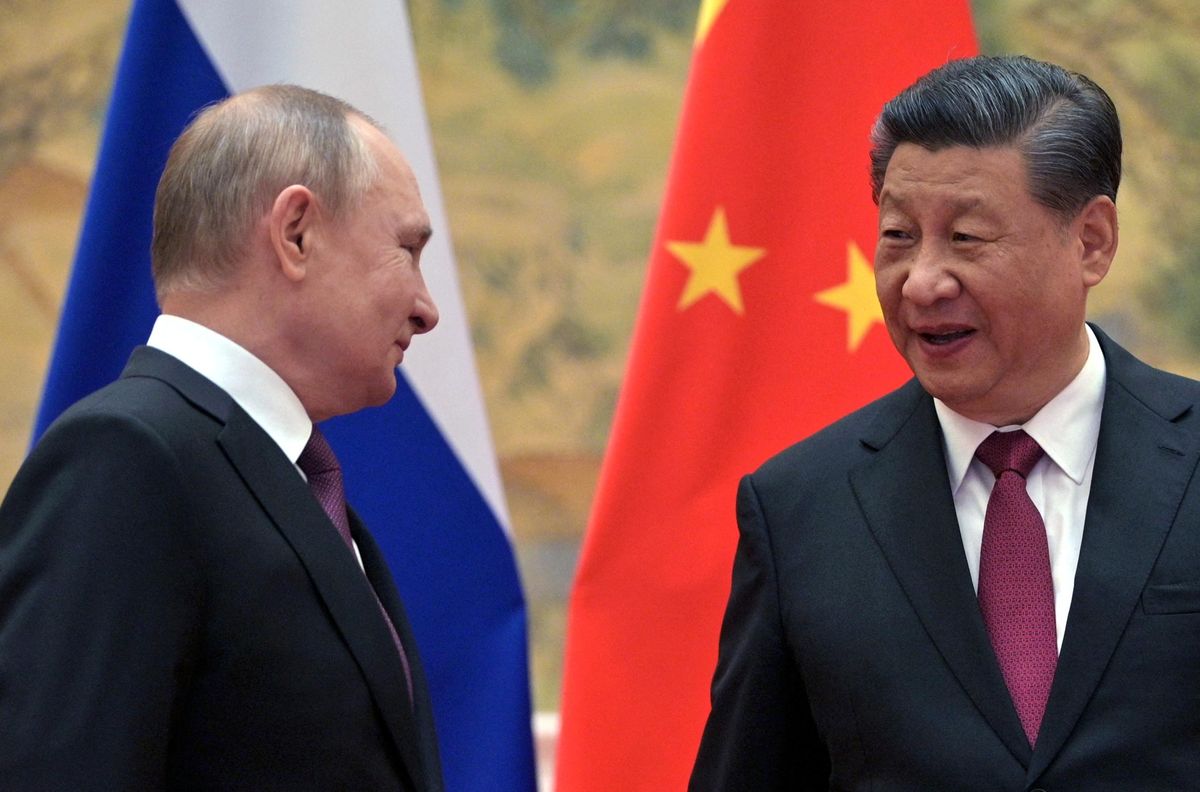Putin hears out Xi on Ukraine, blasts “unipolar” world
Vladimir Putin and Xi Jinping met in person on Thursday for the first time since Russia invaded Ukraine. The Russian leader said he valued the “balanced position” Beijing has taken over Ukraine, noting that he understood Xi’s “concerns” about how the war is going (not well). But since there’s no way the Russian president will reverse course in Ukraine, he took the opportunity to play his greatest hits, railing against US-led efforts to create a “unipolar” world that leaves both Russia and China out to dry. Putin might consider what a US Senate committee did Wednesday an example of that. It advanced a bill that would for the first time authorize providing $4.5 billion worth of direct US military aid to Taiwan. The proposal still needs to pass the Senate, and the White House is not fully on board. But if it becomes law, Beijing will likely see this as a de facto change in US policy toward Taiwan. Since 1979, Washington has sold Taiwan weapons to defend itself against a Chinese invasion that was considered a long shot just a decade ago. Not so much now — which explains why the US is mulling preemptive sanctions to deter Xi.
Will Brussels freeze out Budapest?
The European Union’s executive reportedly plans to recommend withholding billions of dollars in funds to Hungary due to alleged corruption by the Hungarian government. What’s more, in a symbolic vote on Thursday, the European Parliament declared Hungary a “hybrid electoral autocracy,” a scathing condemnation of PM Viktor Orbán’s leadership. Brussels and Budapest have long been on a collision course over the latter’s erosion of democratic norms since Orbán’s conservative Fidesz Party came to power in 2012. Hungary is hoping to unlock more than 40 billion euros of EU funding over the next five years, but the EU alleges that Budapest has failed to reform its public procurement process, which undermines competition and favors government allies. If Brussels follows through, it would send a worrying message to other rogue EU states – like Poland – that have been at loggerheads with Brussels over rule-of-law issues. A final decision will be released Sunday and would need to be passed by a majority of member states to take effect. Orbán, who has long relished his reputation as an anti-EU warrior, has reason to worry given that annual inflation in Hungary hit a whopping 15.6% in August and the currency continues to depreciate.
Sweden’s next government
Magdalena Andersson resigned as Sweden’s prime minister on Thursday following a narrow election defeat for her center-left bloc last weekend. Her Social Democrats – which have dominated Swedish politics for nearly a century – remain the country’s largest party, but it’s bloc politics that matter most, and the parties of the right have proven more unified than those of the left. Moderate Party leader Ulf Kristersson will now try to form a government. Controversies over immigration policy, price inflation, and rising crime have increased support for a bloc of conservative parties that also includes the anti-immigrant Sweden Democrats, which have used the promise to “make Sweden safe again” to stride from the wings to center-stage in Swedish politics. It remains unclear how large a role the Sweden Democrats might play in a Kristersson-led government. Following elections four years ago, it took four months for Andersson to form a government. But Kristersson will begin coalition talks at a moment of national urgency as the country battles an economic crisis and prepares to enter NATO in response to Russia’s invasion of Ukraine. Anti-immigration policies can limit the size of the potential workforce, pushing wages higher. So, the big question will be how conservative parties that are primarily pro-business will bargain with the anti-immigration nationalists of the Sweden Democrats, now the country’s second-most popular party.
Japanese yen drops, further weakening Kishida
Things aren’t going well for Japan’s government. The Japanese yen has continued to drop against an increasingly strong US dollar in recent months, falling to a 24-year low on Thursday. The government, meanwhile, says it has not ruled out intervening to try to prop up the ailing currency, though Tokyo also acknowledged that the effect of such a move would be minimal, in large part because of the significant interest-rate gap between the United States and Japan. While Washington has steadily been raising interest rates to curb inflation, Tokyo has kept rates ultra-low in line with its long-held view that a weak currency is good for exports. But current global inflationary pressures have revealed the vulnerabilities of this approach. This comes at a bad time for Prime Minister Fumio Kishida, whose disapproval rating recently reached 41%, the highest level since he took office a year ago. Kishida’s popularity has nosedived over the ruling Liberal Democratic Party's ties to the controversial Unification Church following the assassination of former PM Shinzo Abe. Moreover, the government’s decision to hold an expensive state funeral for the slain former PM on Sept. 27 has been broadly criticized.

















